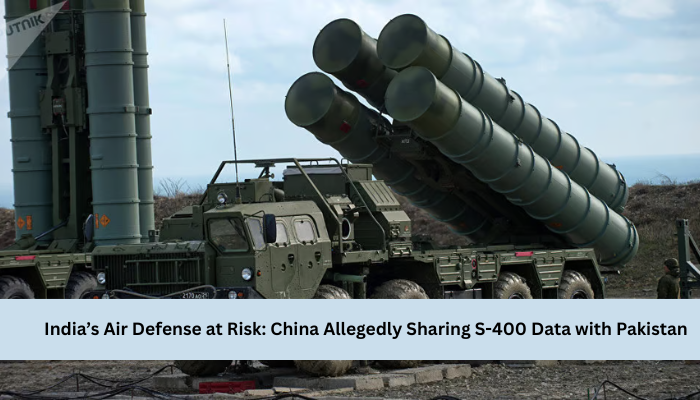India considers the Russian-made S-400 missile system a key pillar in its national security architecture. Purchased from Russia, this high-tech air defense platform has been deployed specifically to counter potential aerial threats from neighboring China and Pakistan. However, a recent report has raised significant concerns within India’s defense circles.
According to a report by BulgarianMilitary.com, there are ongoing discussions about a secret agreement between China and Pakistan. As per the report, China may be willing to share sensitive technical data about the S-400 system with Pakistan. If true, this information could be exploited by Pakistan in a conflict scenario against India, thereby severely compromising India’s defensive posture. While no official confirmation has been provided yet, even the possibility of such a breach could prove to be both politically and economically disastrous for India.
What is the S-400 System?
The S-400 Triumf is an advanced air defense missile system developed by Russia’s Almaz-Antey. It is considered one of the most effective systems in the world, capable of engaging a wide range of aerial threats including fighter jets, cruise missiles, ballistic missiles, and drones. The system has an operational range of up to 400 kilometers and can simultaneously track and neutralize multiple targets.
When Did India And Russia Sign the Deal?
India signed a $5.43 billion deal with Russia in 2018 to procure five squadrons of the S-400 system. By 2023, India had received three of these squadrons. The remaining two were delayed due to the ongoing Russia-Ukraine conflict. India has strategically deployed the S-400 units along its borders with China and Pakistan, making them a crucial component in maintaining regional balance and deterrence.
China Also Owns the S-400
China acquired the S-400 from Russia in 2014 and has since developed a deep understanding of its capabilities and limitations. With years of operational experience, China is now in a position to share specific data with Pakistan, including radar frequencies, interception algorithms, system vulnerabilities, blind spots, and even electronic jamming tactics. Such data could potentially help Pakistan evade India’s air defense using low-flying cruise missiles, drones, or jamming systems. This could render India’s massive investment in the S-400 less effective, undermining both financial and strategic efforts.
Why Does Pakistan Want S-400 Intelligence?
Though Pakistan does not possess the S-400 system itself, it would find technical data immensely useful. With such information, Pakistan could look to counter India’s air superiority, particularly in preventing surgical strikes along the Line of Control (LoC). It could also optimize routes for drone incursions or missile launches. If Pakistan manages to access S-400 data, India’s aerial missions could be at serious risk. The overall impact would be a weakening of strategic deterrence and potential leaks in the Indian Air Force’s operational plans. This would represent a major tactical disadvantage in any future conflict.
Is Russia Taking This Threat Seriously?
So far, Russia has not issued an official statement regarding concerns about China potentially leaking S-400 data to Pakistan. However, international arms deals generally include an “End-User Agreement,” which prohibits the buyer from sharing technical information with third parties. If China violates this clause, it could significantly alter Russia’s military equations with Pakistan and strain its relationship with India.
Such a breach may also prompt India to reassess its defense procurement strategy and shift further toward Western nations like the United States and France for military support and collaboration. A decline in trust with Russia could also affect future deals, putting India in a position to seek alternatives for key defense technologies.
Conclusion
The possibility of China sharing S-400 missile system data with Pakistan poses a serious threat to India’s air defense capabilities and overall security framework. While currently unconfirmed, even the suggestion of such a deal warrants serious diplomatic and military scrutiny. India may need to engage with both Russia and international allies to ensure its strategic assets remain secure and uncompromised.
Also Read: India Bans All Imports from Pakistan After Pahalgam Terror Attack











